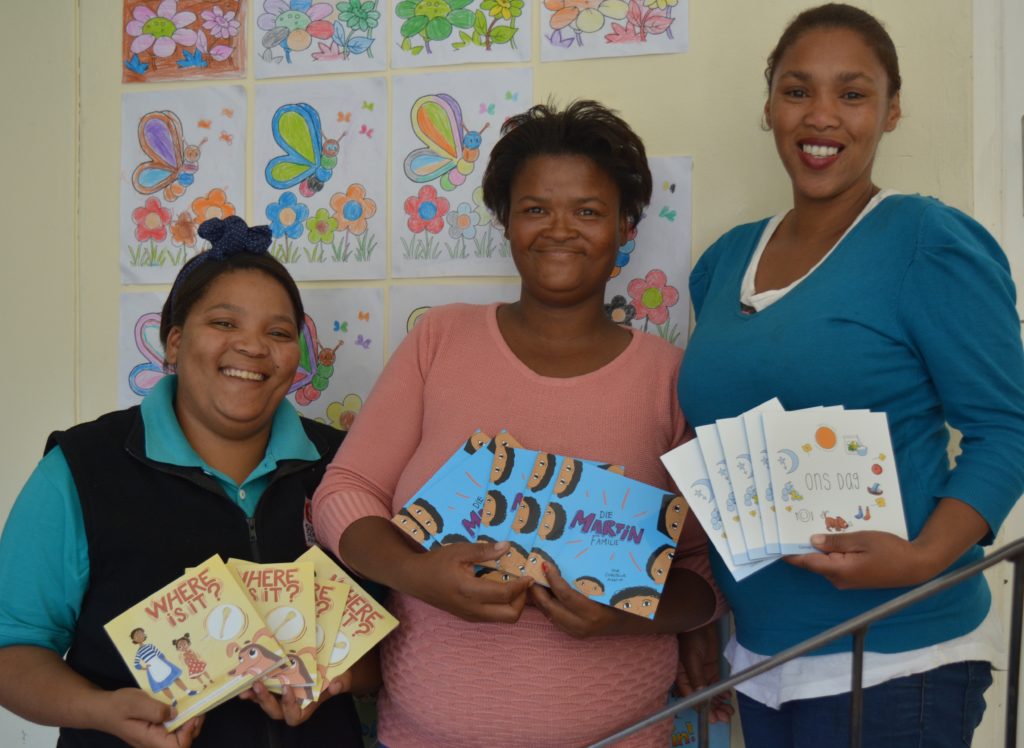By DEBBIE SMUTS
Imagine a home with no books, and parents who don’t read. And then teachers from school who tell you how beneficial it is to read to your kids. Imagine the hopelessness you would
feel as a parent.
The Lebone Centre is changing all that for a group of parents, who are not only being encouraged to
read stories to their children despite their limited literacy, but to become authors. Working with the Reading Champions Project and the University of Johannesburg, three local mothers have been able to write their own stories and have them published.
The project aims to create wordless picture books based on stories sourced from parents and children in South African communities. The picture books allow readers to use the illustrations to create a story in a language of their choice. In this way, they hope to foster a love of books, reading and storytelling regardless of literacy levels, language preference and age.
Three local mothers who have been working with the storytelling project of the Lebone Centre have had their stories published in booklets which will be distributed in their communities.
Shanice Boesak could not contain her pride and excitement when she saw her published story, Where is it?
“I didn’t realise it would look like this!” she said, holding the booklet out proudly. “I like telling stories, so I thought I would tell a story about an adventure, and then I thought about how I make pancakes with my kids.
“There are no books in my community, even in my street. But this book I can share with other parents and read it to other children. I’m so proud to see my name on the front of this book.”
Chantelle Martin’s book, Die Martin Familie tells an everyday tale of a day in the life of her family with five rambunctious boys. They attend preschool and after-school care at Lebone Centre, and this features in her book, along with her daily tasks of washing and cooking for them.
The sense of family with the family photo on the wall in every picture is a strong theme in the little story. Chantelle shyly says the book is “just about my family and it makes me happy”. She pages through the book and tells the story, and one senses that it will be different every time.
Anthea Davis’s book, Ons dag also tells a story of an “ordinary day”, she says, “but everyone tells their own story, with their own opinions.
“Many of the parents in my community have not been to school, and they don’t have to be scared of these books, because they can all read them and tell their own stories
through the pictures.
“I’m so proud to be part of this project where we can teach parents to read to their
children without worrying that they are not educated. We need to teach them to love the time they spend reading to their kids and even the kids in their street.”
The moms provided a basic story board with hand-drawn pictures for their stories. These were interpreted by Dr Adrie Haese and graphic design students from the University of Johannesburg in a collaborative process and the books were published with funding from various sources supporting the literacy work of the Lebone Centre.
Each author will be given a number of books to distribute to their friends and family and further copies will be available for sale from the Lebone Centre.
Anneliese Maritz, Lebone Centre Manager, said, “This has been such a rewarding project. These mothers are so proud of their involvement in promoting literacy in their communities, despite their own limited education.
“They are setting such a wonderful example that you can engage in teaching your
child to love books and reading despite your background. And slowly, their homes have some books in pride of place. The impact of these wordless storybooks is huge, because they belong to the community and they can be interpreted in a hundred different ways, giving them life and making their authors so proud.”
Anyone wishing to purchase the delightful booklets or find out more about the project can contact Anneliese or Cherise on 046 622 7985.


